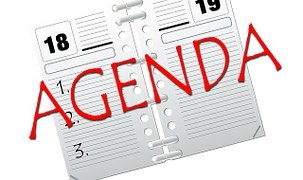Mastering Structured Facilitation Techniques for Effective Team Focus Sessions and Meetings
Structured facilitation is essential to running productive team focus sessions and meetings that generate actionable outcomes. As workplaces evolve rapidly, having a clear facilitation strategy empowers managers, participants, and facilitators alike to handle complex group dynamics and diverse responsibilities.
Whether you’re leading brainstorming sessions, steering consensus, or guiding decision-making, proven facilitation methods and strategies ensure your meetings are focused, engaging, and efficient.

What is a Focus Session and Why Use Structured Facilitation?
A Focus Session is a structured meeting format that brings people together to explore a specific topic, generate ideas, or solve problems collaboratively. Unlike informal meetings, focus sessions benefit greatly from planned facilitation techniques designed to keep discussions on track and equitable.
As a facilitator, you are responsible for shaping how the group interacts, ensuring everyone’s voice is heard, and guiding the team toward its objective. Here are the core facilitator responsibilities:
- Set a positive tone for conversation and collaboration.
- Remain impartial on issues discussed.
- Keep the team focused on goals and agenda.
- Manage time effectively throughout the session.
- Recommend facilitation techniques that boost team effectiveness.
- Encourage participation from all members.
- Clarify roles and actions for participants.
- Protect valuable ideas and group contributions from premature criticism.
- Organize and store administrative and session data.
- Ensure accurate documentation of discussions and decisions.
Setting the Stage: Preparing Your Focus Session Environment

Opening remarks are crucial to establishing the right atmosphere. Depending on your team’s culture and the session’s purpose, determine if the environment should be formal or casual. Use icebreakers strategically to warm up the room when appropriate.
As the facilitator, make sure to:
- Clearly explain the session’s purpose and what success looks like.
- Introduce yourself and clarify your facilitation role.
- Lay out the meeting agenda, ground rules, and any incentives.
- Use icebreaker or introductory exercises to create engagement when relaxed settings are preferred.
Types of Facilitator Involvement
Effective facilitators use different levels of involvement depending on the situation:
- Conceptual Facilitation: Present ideas, models, or frameworks that help the team approach the task.
- Prompting: Remind the team of agreed-upon guidelines and procedures.
- Activity Observation: Help the group reflect on their process and results.
- Compare and Contrast: Provide constructive feedback to reinforce effective behaviors or redirect ineffective ones.
- Peaceful Atmosphere: Occasionally, stepping back can encourage self-regulation in mature, experienced teams.
Common Types of Focus Sessions
Choosing the right session style is important. Examples include:
- Traditional Session: Large groups discuss a topic without prior prep, aiming for broad input and consensus ideas.
- Round Table Discussion: Smaller groups (10–15 people) meet with pre-session information and a facilitated discussion focused on specific issues.
- Strategic Planning Exercises: Structured workshops aimed at goal setting and action planning.
Traditional Session Example
- Opening remarks by the facilitator
- Explain session purpose and process
- Introduce team members
- Team brainstorming in smaller groups with coaching
- Multi-voting on brainstormed ideas
- Nominal Group Technique (NGT) for consensus building
- Closing remarks and session evaluation
Round Table Discussion Session
- Pre-session documents sent to participants for preparation
- Multiple note takers to capture detailed insights
- Facilitator as a supportive manager of discussion flow
- No expectation for consensus to encourage open debate
- Summary of key points documented and distributed afterwards
Guidelines for Effective Facilitation
- Only one person speaks at a time; avoid side conversations.
- Refrain from evaluations or sharing premature judgments.
- Be concise and stay on topic.
- Encourage open dialogue among all participants.
Detailed Focus Session Planning Checklist
Use this checklist to systematically prepare and execute your focus session with confidence and clarity. Not all items apply to every session; adapt as needed.
| Step | Action | Details |
|---|---|---|
| 1 | Define session goals | Clarify what information or decisions are needed. |
| 2 | Identify participant group | Choose stakeholders relevant to session objectives. |
| 3 | Analyze participant database | Segment to find focus areas to explore. |
| 4 | Schedule session date/time/location | Consider availability and logistical needs. |
| 5 | Obtain management approval | Ensure alignment and support from leadership. |
| 6 | Assign participant invitation duties | Select team member(s) with strong communication skills. |
| 7 | Develop session agenda and questions | Structure flow and allocate time for each activity. |
| 8 | Coordinate logistics | Book venue, arrange refreshments, procure equipment (microphones, whiteboards, etc.). |
| 9 | Contact participants | Make initial invitation calls or emails. |
| 10 | Coach invitation callers | Provide scripts or talking points for consistency. |
| 11 | Confirm participant attendance | Track RSVPs and send reminders. |
| 12 | Prepare participant materials | Send agendas, directions, parking info, and any pre-work. |
| 13 | Assign staff roles | Designate facilitators, note takers, and logistical support. |
| 14 | Track expenses | Input costs into the expense reporting system. |
| 15 | Assemble session supplies | Gather pens, notepads, name tags, handouts, giveaways. |
| 16 | Conduct the session | Follow agenda while adapting to flow and group dynamics. |
| 17 | Collect and analyze session outcomes | Review notes and feedback to extract key insights. |
| 18 | Prepare summary report | Document decisions, action items, and next steps. |
| 19 | Send thank-you notes | Express appreciation to participants promptly. |
Niche Application Examples of Structured Facilitation
Human Resources Focus Sessions
Use structured facilitation to design effective employee feedback workshops and conflict resolution meetings. For example, leveraging the 360 Degree Feedback Template helps guide unbiased evaluation discussions.
Sales Team Workshops
Structured brainstorming sessions with multi-voting techniques can help prioritize sales strategies and refine sales pitches effectively.
Strategic Planning and Growth
Incorporate frameworks like Balanced Scorecard tools during focus sessions to align team goals with company strategy and track progress systematically.
Additional Tips for Successful Facilitation
- Prepare flexibly – have backup activities or questions in case the session goes faster or slower than expected.
- Promote psychological safety to encourage open sharing without fear of criticism.
- Use visual aids and real-time documentation to maintain engagement and clarity.
- Encourage quiet members to contribute by direct invitation or anonymous input tools.
Quick Reference: Effective Facilitation Techniques
- Nominal Group Technique (NGT): Individual idea generation followed by team discussion and voting.
- Consensus Building: Facilitated negotiation to reach general agreement.
- Multi-voting: Prioritizing ideas through weighted votes.
- Brainstorming: Encouraging free flow of creative ideas without early judgment.
Summary: Steps for a High-Impact Focus Session
- Clearly define objectives and desired outcomes.
- Choose appropriate session type and techniques.
- Prepare logistics and materials thoroughly.
- Communicate effectively with participants before and during the session.
- Guide discussion impartially and keep the team on track.
- Document outcomes and share results following the session.
By following structured facilitation methods and using proven checklists, your team focus sessions will drive clarity, engagement, and measurable results.
For further guidance on optimizing your team’s performance and managing workflows effectively, explore resources like the Productivity & Time Management Strategy Pack and the Financial Health & Profit Boost Strategy Pack. These tools complement facilitation techniques by offering actionable templates and strategies for sustained team success.
Tags: facilitation techniques, team focus sessions, meeting facilitation






























